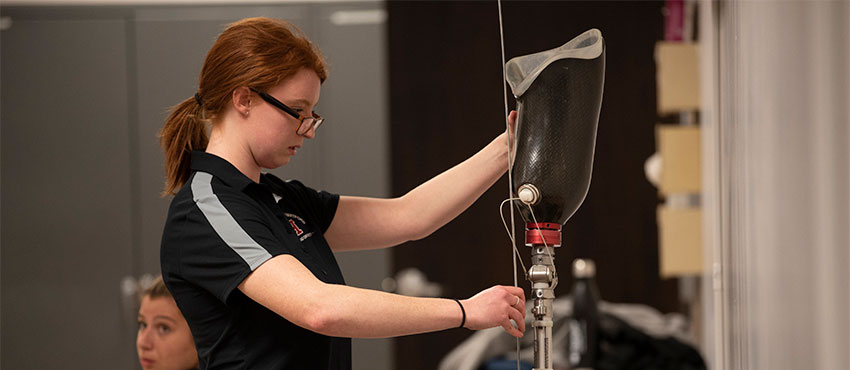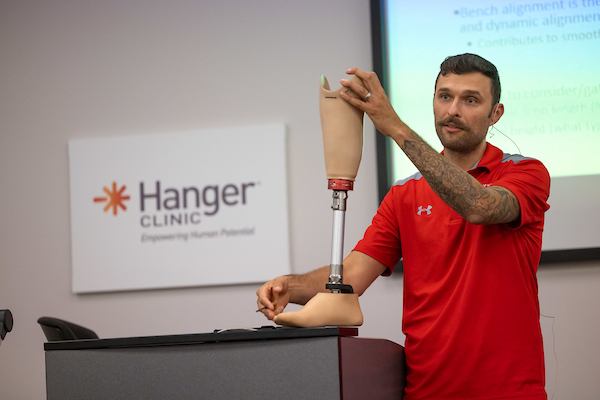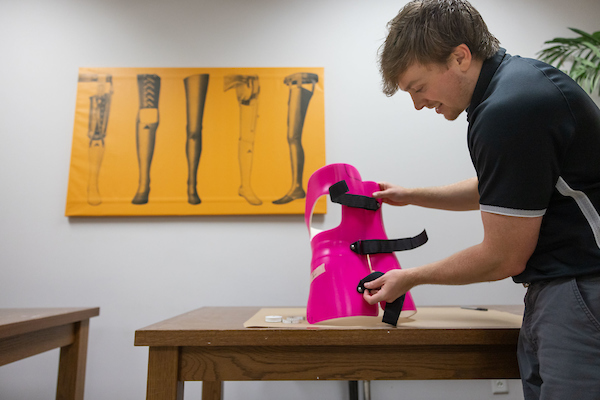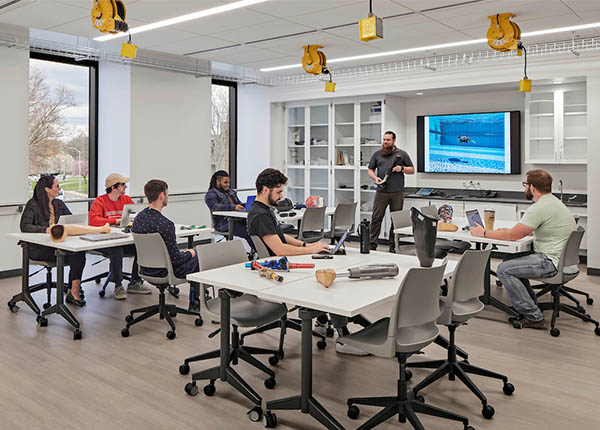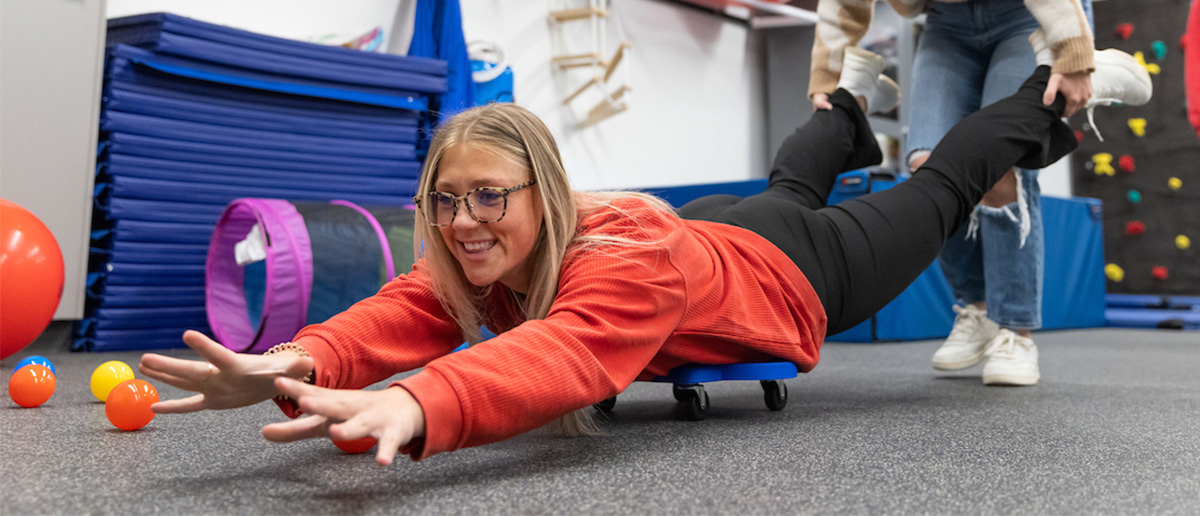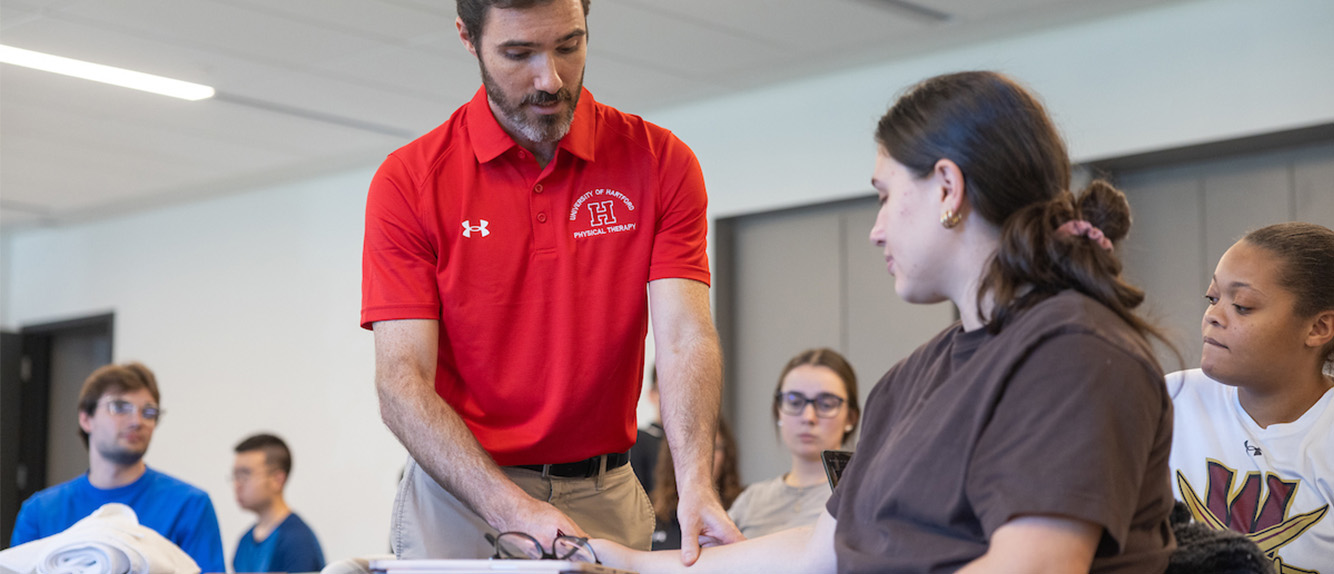Provide entry-level clinical services in a safe, legal, ethical, and professional manner while providing patient-centered care.
Upon successful completion of the program, the students/graduates will:
- practice in a safe manner.
- demonstrate professional behavior.
- practice in a manner consistent with established legal and professional standards and ethical guidelines.
- be prepared to enter financial management (purchasing, billing and reimbursement, time, space, equipment, marketing, public relationships) consistent with regulatory, legal, and facility guidelines.
Employ effective communication strategies with colleagues, clients, and the public.
Upon successful completion of the program, the students/graduates will:
- adapt delivery of prosthetics and orthotics services with consideration for patients' differences, values, preferences, and needs.
- employ effective communication strategies.
- Communicate consistent with the knowledge level of the audience.
Engage in the process of evidence-based practice, scientific inquiry, and development of new knowledge.
Upon successful completion of the program, the students/graduates will:
- create and defend a research plan.
- apply current knowledge, clinical judgment, and the patient's values and perspective in patient management.
- collect and analyze data from selected outcomes measures in a manner that supports accurate analysis of individual patient and group outcomes.
- perform a patient examination using evidence-based tests and measures.
- establish a plan of care that is evidence-based.
Embrace the role of collaboration as a member of the interdisciplinary team.
Upon successful completion of the program, the students/graduates will:
- participate in internship opportunities in diverse settings.
- have opportunities to participate in collaborative learning with other healthcare professionals.
- have the ability to engage in identifying unique standards of practice within the healthcare community.
- engage in community service.
- connect to a core of clinical adjunct faculty who provide liaisons with local clinical sites.
Value cultural diversity within the profession and the community.
Upon successful completion of the program, the students/graduates will:
- adapt delivery of prosthetics and orthotics services with consideration for patients' differences, values, preferences, and needs.
- apply current knowledge, clinical judgment, and the patient’s values and perspective in patient management.
- establish a plan of care that is safe, effective, patient centered and evidence based.
- determine with each patient encounter the patient’s need for further examination or consultation
Demonstrate the ability to integrate knowledge of the fundamental science in human function into a comprehensive orthotic/prosthetic treatment plan.
Upon successful completion of the program, the students/graduates will:
- identify areas of basic human function (physical, cognitive, social, physiological) and incorporate them into patient assessment.
- apply foundational sciences throughout the assessment, formulation, implementation, and follow-up phases of treatment plan.
Assume a proactive role in partnership with communities in healthcare decisions, including increasing access to healthcare to those with unmet needs.
Upon successful completion of the program, the students/graduates will:
- be familiar with local and national resources available to patients (e.g. support groups, free clinics, pro bono opportunities).
- offer/provide appropriate prosthetics/orthotics perspective within the healthcare team's treatment plan.
Participate in outcome assessments, peer reviews, and self assessments.
Upon successful completion of the program, the students/graduates will:
- identify the level of appropriate participation for each assessment.
- hold a constructive role in critiquing, collaborating, or conducting various assessments.
The MSPO Program will
- use outcomes data collected through post-graduation surveys of alumni, employer, and patients to enhance/update any programmatic aspects.
- consider any recommendations to continue academic improvement.
Foster a commitment to lifelong learning and professional development.
Upon successful completion of the program, the students/graduates will:
- embrace knowledge-based practice within the healthcare arena.
- seek out continuing-education opportunities to expand professional knowledge.
- change environment through fostering continuing-educational opportunities in clinical staff and/or peers.
- foster professional development through leadership and participation in professional organizations.
Become critical thinkers who are academically and clinically prepared to meet professional standards and address patient expectations.
Upon successful completion of the program, the students/graduates will:
- utilize and interpret evidence-based practice appropriate to individual patients during treatment.
- demonstrate appropriate perspective to maximize functional attributes of the patient.
- employ critical thinking when applying appropriate treatment outcomes.
- Think critically when viewing profession as a whole.
